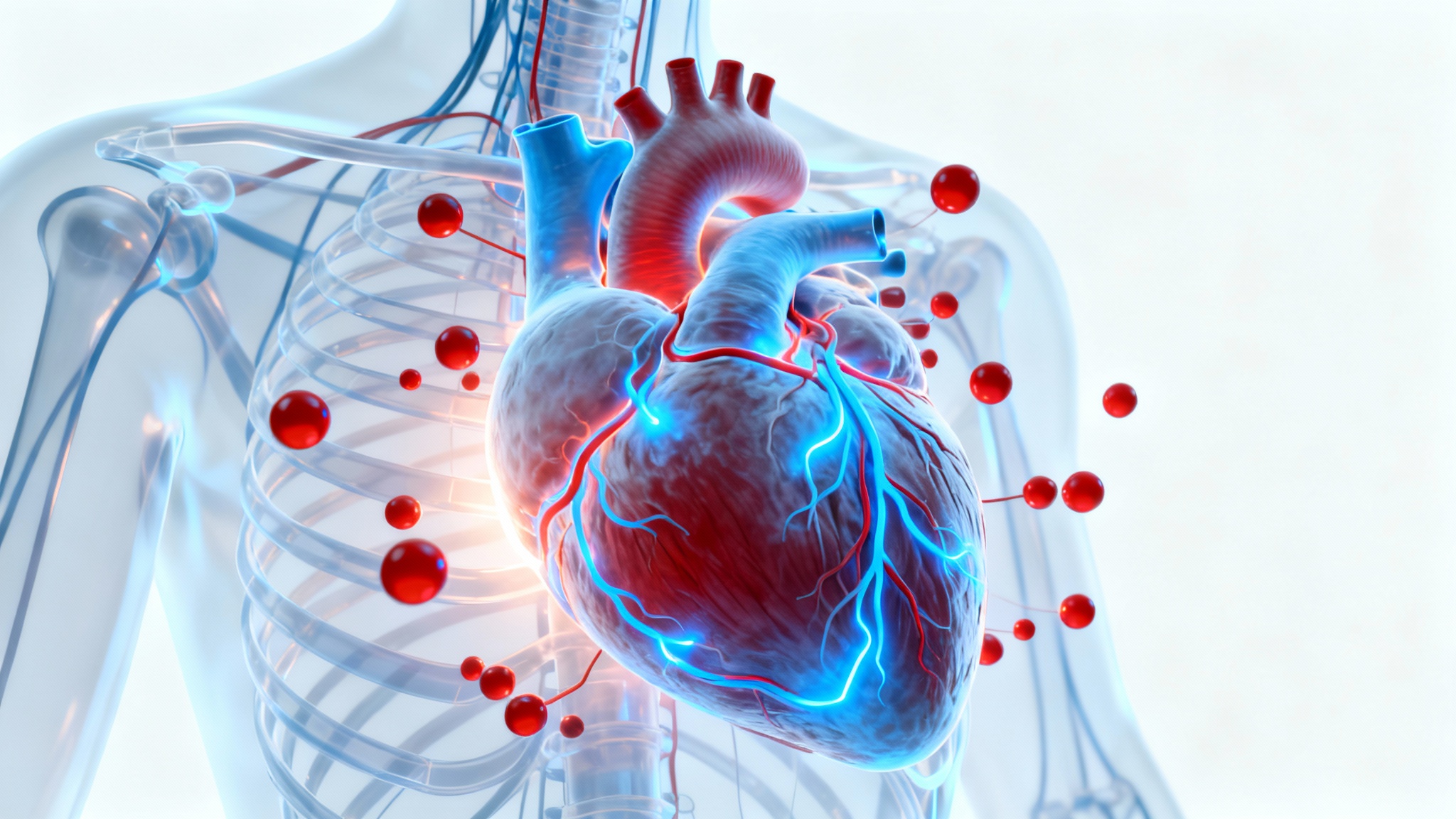Introduction: The Unsung Heroes of Your Cardiovascular System
In the quest for a long and healthy life, maintaining excellent Heart Health is paramount. While diet and exercise are widely recognized pillars of cardiovascular wellness, certain micronutrients play a foundational, yet often overlooked, role. Among these are magnesium and potassium, two essential minerals that work tirelessly behind the scenes to ensure your heart functions correctly. Understanding their impact is a critical step toward achieving an Optimal Heart. This article explores the science-backed benefits of magnesium and potassium, their synergistic relationship, and how you can ensure you’re getting enough to protect your body’s most vital organ.
The Critical Role of Magnesium in Heart Health
Magnesium is a powerhouse mineral involved in over 300 enzymatic reactions in the body, many of which are central to cardiovascular function. Consistent intake is directly linked to better Heart Health outcomes and is a cornerstone of preventative care.
Regulating Heart Rhythm and Preventing Arrhythmias
Magnesium is crucial for maintaining a steady heartbeat by supporting the transport of other electrolytes, like calcium and potassium, into and out of cells. This process is fundamental for nerve signal transmission and muscle contraction, including the heart muscle. A deficiency in magnesium can disrupt this delicate balance, potentially leading to arrhythmias (irregular heartbeats) like atrial fibrillation DiNicolantonio et al., 2018. Ensuring adequate magnesium levels is therefore essential for the electrical stability of an Optimal Heart.
Lowering Blood Pressure
High blood pressure (hypertension) is a major risk factor for heart disease and stroke. Magnesium helps relax and dilate blood vessels, which in turn lowers blood pressure. A comprehensive meta-analysis published in Hypertension confirmed that magnesium supplementation significantly reduces both systolic and diastolic blood pressure in individuals with insulin resistance, prediabetes, or other chronic conditions Zhang et al., 2016.
Potassium: The Counterbalance for an Optimal Heart
Potassium is another key electrolyte whose primary role in Heart Health involves its relationship with sodium. It is a vital component of any diet aimed at achieving an Optimal Heart and maintaining cardiovascular resilience.
Balancing Sodium and Managing Blood Pressure
One of potassium’s most important jobs is to help the body excrete excess sodium through urine. High sodium intake is a well-known contributor to high blood pressure. By counteracting sodium’s effects, potassium helps manage blood pressure levels effectively. The World Health Organization (WHO) strongly recommends increasing potassium intake from food to reduce blood pressure and the risk of cardiovascular disease, stroke, and coronary heart disease in adults WHO, 2012.
Reducing Stroke Risk
Beyond its effect on blood pressure, adequate potassium intake is independently associated with a lower risk of stroke. A large-scale review found that individuals with higher potassium intake had a 24% lower risk of stroke Aburto et al., 2013. This highlights potassium’s direct protective effects on the vascular system, contributing significantly to long-term Heart Health.
How Magnesium and Potassium Work Together for Heart Health
The synergy between magnesium and potassium is crucial for an Optimal Heart. Magnesium is required for potassium to be properly utilized and retained within cells. In a state of magnesium deficiency, the body cannot hold onto potassium, leading to a concurrent potassium deficiency (hypokalemia) that is difficult to correct with potassium supplementation alone Huang & Kuo, 2007. Together, they regulate blood pressure, support heart muscle function, and maintain a stable heart rhythm, making them an indispensable duo for cardiovascular wellness.

Practical Guide: Boosting Your Mineral Intake
Achieving adequate levels of these minerals is best done through a balanced diet rich in whole foods.
-
Magnesium-Rich Foods: Leafy green vegetables (spinach, kale), legumes, nuts (almonds, cashews), seeds (pumpkin, chia), and whole grains.
-
Potassium-Rich Foods: Fruits (bananas, oranges, avocados), vegetables (sweet potatoes, tomatoes), beans, lentils, and dairy products.
While supplementation is an option, it’s vital to consult with a healthcare provider before starting any new supplement regimen, as excessive intake can be harmful, especially for individuals with kidney conditions.
Conclusion: Prioritize These Minerals for an Optimal Heart
Magnesium and potassium are not just minor nutrients; they are essential electrolytes that form the foundation of good Heart Health. From regulating your heartbeat and lowering blood pressure to reducing your risk of stroke, their benefits are profound and well-documented. By focusing on a diet rich in fruits, vegetables, nuts, and whole grains, you can naturally boost your intake of these minerals and take a significant, proactive step toward maintaining an Optimal Heart for years to come.



